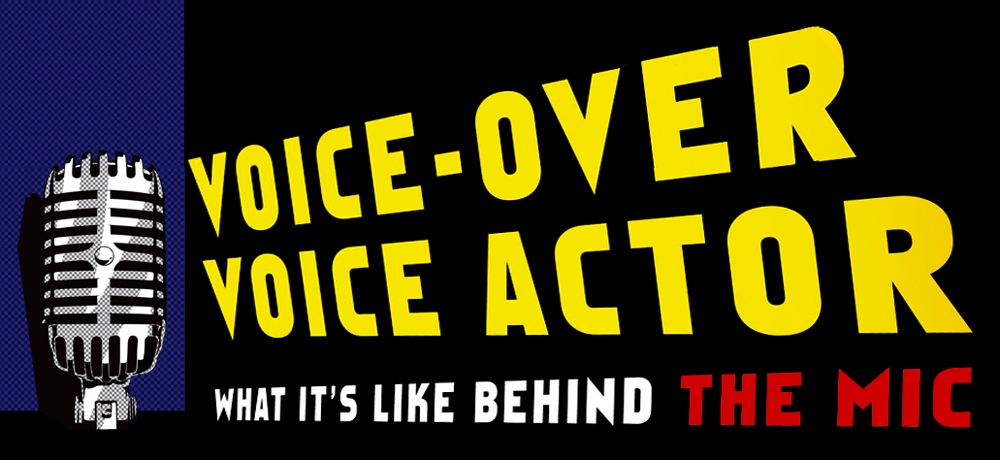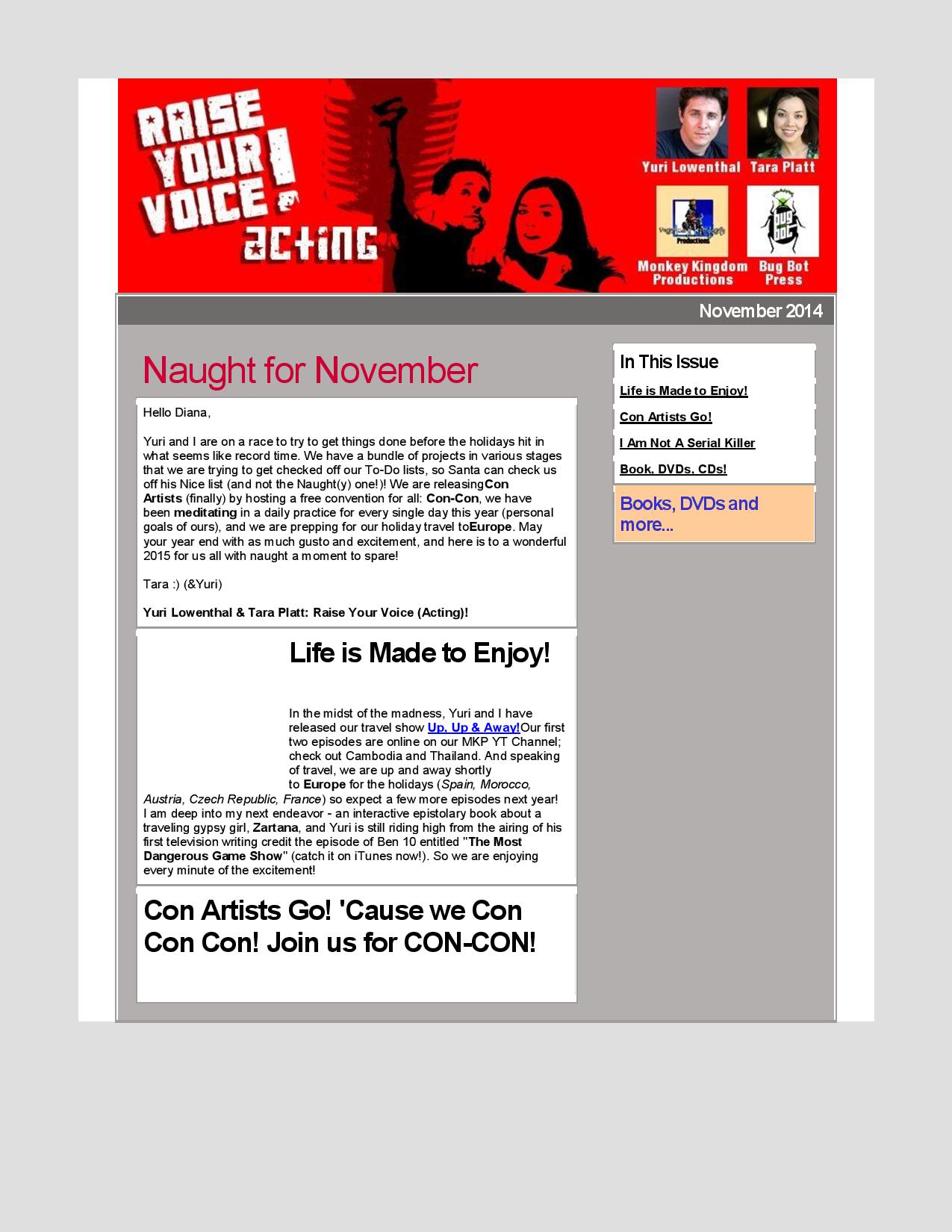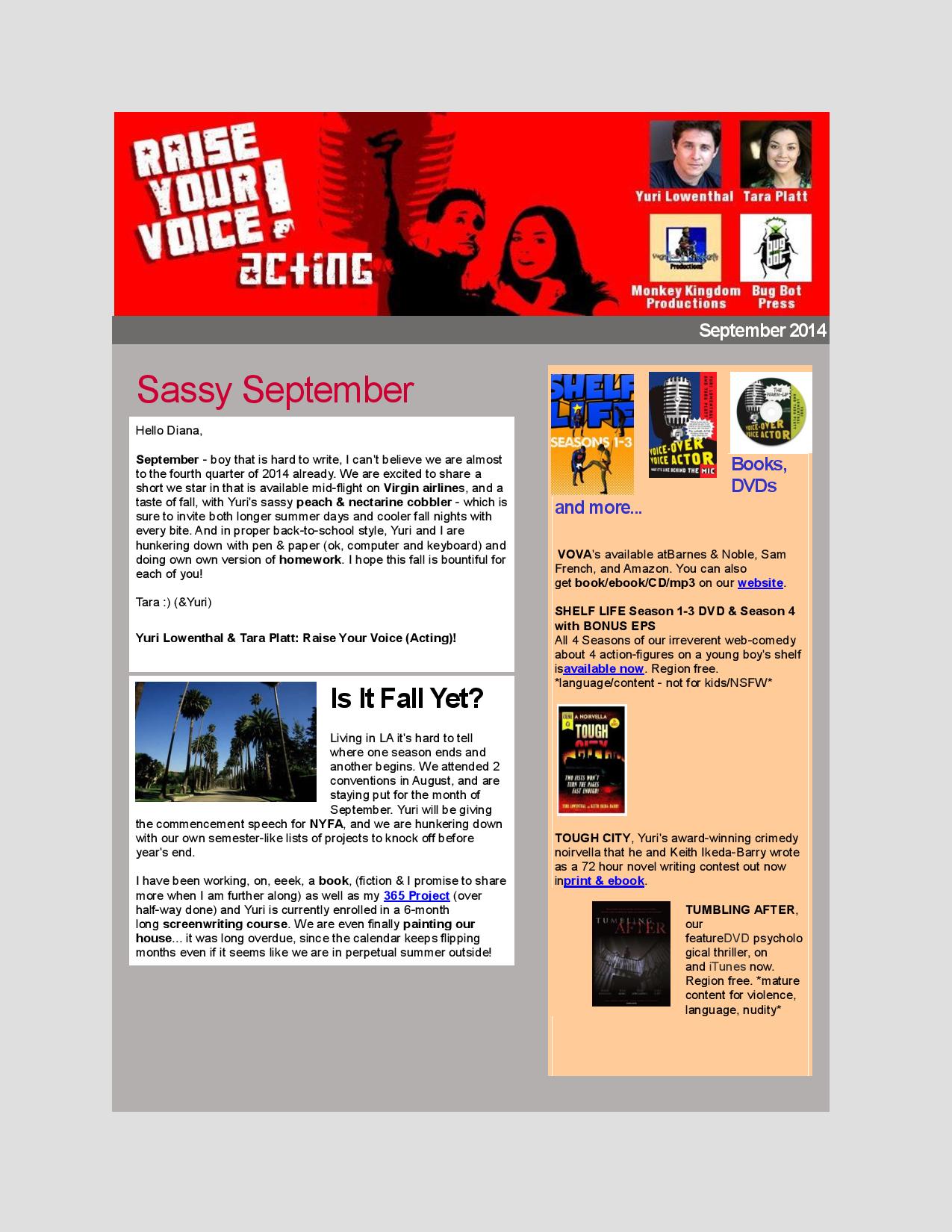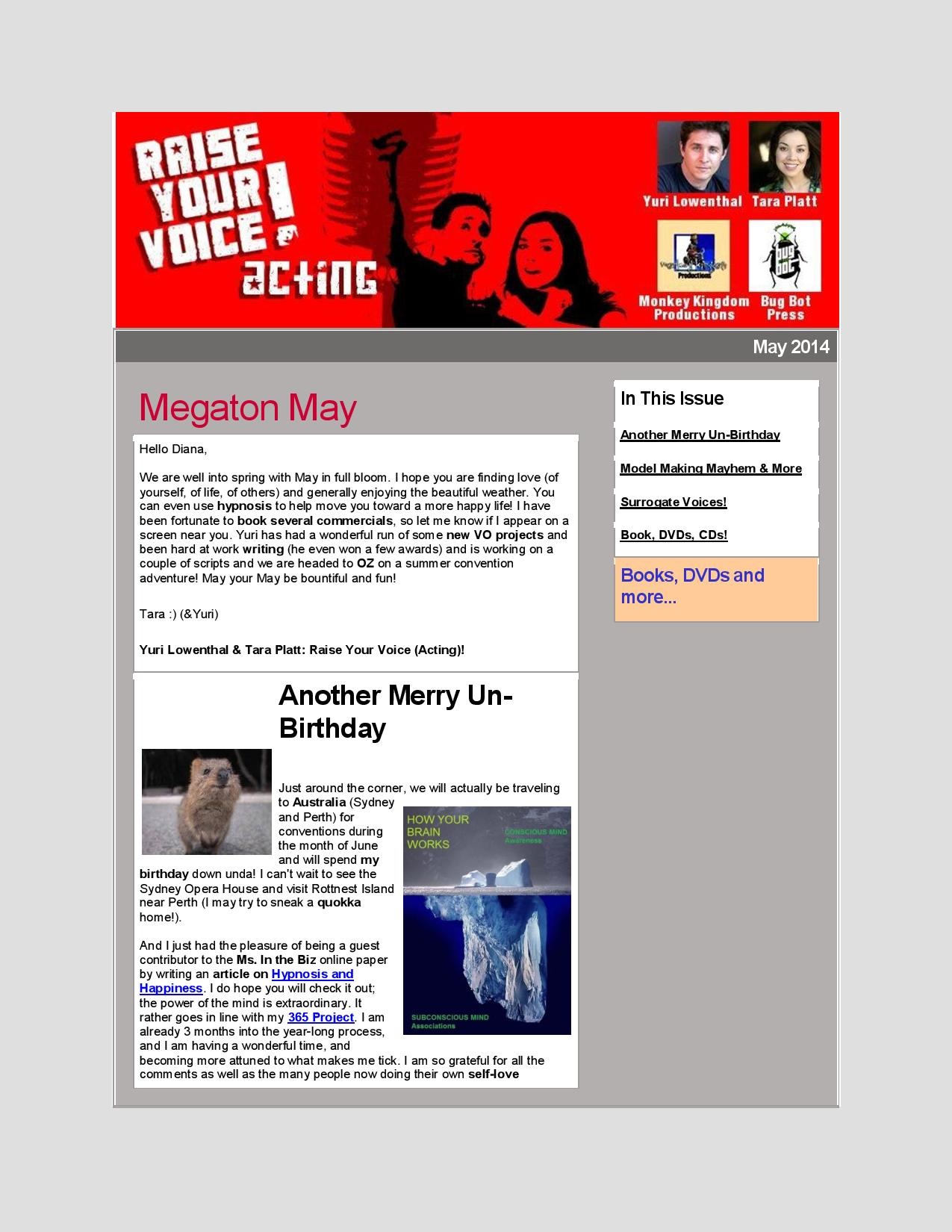
Here is an excerpt from our book, Voice Over Voice Actor: What it’s like behind the mic. Hope you find it helpful!
“But I haven’t done any work yet! What am I supposed to put on my reel?” you may ask, your brow furrowing in panic and dismay. Relax that brow. A demo reel doesn’t have to be from actual work you have already done; more often than not, everything on a demo is totally fabricated. As a matter of fact, even if you do have some real material to put on your reel, you may want to put made-up stuff on it anyway. This will allow you to focus the demo and highlight the qualities that you want to showcase. After all, demo can also mean demonstration of what you can do, not necessarily what you have done.
Now here’s a thing that’s going to highlight the weirdness of the entertainment biz: all agents know that actors make up most of what’s on their demos, especially when just starting out; but they still want to be fooled. So that’s what you’ve gotta do. Fool ‘em as best you can. Let’s see how you can do that.
What are you going to record? Well, first we're going to caution you against copying things directly from other commercial spots you hear or shows you see. The reason for that is this: as big as you think this world is, people are paying attention; and with people like casting directors and agents, it's their job to pay attention.
You don't want to record yourself doing a McDonald's spot you heard on the radio or shouting out the catchphrase of a popular animated character, and then send it to an agency whose client actually did record that spot or character. Your demo will immediately be outed and possibly thrown away. That’s not to say it's definitely going to happen, but we feel that in this situation, it's better to be safe than sorry, especially when there are easy ways to cover your tracks.
This seems like a good place to mention something else that we feel is important and will serve you throughout your long career in this business: don't lie about the work you've done. There might be a temptation to say that you worked on things you didn't work on so you seem more experienced to a possible employer, especially in the beginning when you don't have any credits to speak of. Don't. Don't do it.
We're not saying you should open every conversation with, “Okay, now, I just want you to know that I have never done this before.” If they don't ask, let 'em think what they want. But don't put titles that you didn't work on, on your résumé because you'll be working in a very tight circle of people. And if the person reading your résumé didn't cast it, odds are he or she knows the person who did, or the director; and being caught in a lie is a great way to get remembered for all the wrong reasons. Don't get caught up in trying to make people think you're much more experienced than you are. If they like you, they're going to want to be the one who discovered you. Let 'em discover you.
After reading the last few paragraphs, you may be saying to yourself, Hey, first they're telling me to fake it and now they're telling me not to lie. What gives? Sure, our advice on these two issues can be seen as inconsistent, but trust us on this one. Acting is a business of illusion, and the demo is an accepted bending of the rules in this world. Taking credit for things you did not do, not so much.
Now that we've hopefully made that clear, let's get back to making your demo sound as legit as you can. But if I can't copy real things, how am I supposed to know what to record? you may ask. Well, here's another place where we're going to ask you to employ that powerful imagination of yours. Look at some real stuff … and then mess with it.
To create commercial copy for your reel, go pick up a magazine and flip through the ads. Print ads are written differently than radio or TV ads, so you won't ever have to worry about someone already having recorded this spot. Now mess with it, rewrite it a bit, and make it your own.
Do the same for animation and video game bits. Watch, listen, play, take notes. Then mess with it, riff on it, make it your own. If you really hate writing, find a friend who's good at it and see if he or she will help you. Before you know it, you'll have scripts to record. And you don't need many.
Let's say you've recorded your demo as professionally as you can. Now, you'll want someone (an audio engineer) to spend time mixing it and sweetening it with effects and music, so that it sounds as if the spots were pulled from actual shows or commercials. The engineer will work with each clip you've recorded as if it were a real spot, and make it sound as good as possible; then you'll work together to pull your favorite section of each spot.
You'll want your demo to run about sixty seconds total, so you'll have to pick only the best part from each spot. Agents and casting directors are busy people. They're not going to have time to listen to a five-minute demo, so you gotta hook 'em quickly and leave 'em wanting more.
Another trick that engineers often use to help the demo reel sound more realistic is to change the recording levels and settings between the different spots. This way, even if you record them back-to-back in one session, the sound quality will be slightly different from spot to spot, just as if you had recorded each spot at a different time in a different studio with a different engineer. You can even help the engineer achieve this effect by changing your position slightly from script to script. It may seem funny, but sound is a finicky thing; and little things, even moving an inch back from the mic, or an inch left or right, can drastically affect how your voice is recorded. That's why, if you record at a certain studio regularly, you may notice the mic setup is always the same in order to maintain consistency in recording.
All of these things will add up to a professional sounding demo, which will be key in helping to open the doors that lead to work. Don't be afraid to spend both time and money on your demo, but also don't be afraid to shop around. If a deal seems too good to be true, make sure it isn’t by first doing a little research on your own. If the Internet's good for something, it's research. Well, research and downloading videos of cats doing cute things.
+++++++++++++++++++++++++++++++++++++++++++++++++++++++++++++++++++
Check out our VoiceOverVoiceActor website for more tips and exercises. We post daily VO tips on Facebook and Twitter, and our book, Voice Over Voice Actor: What it’s like behind the mic includes a wealth of exercises to build your voice and keep it ready for a successful voice over career!






 It is good to study other terrific voiceover artists to really learn the ropes. There are many success stories out there in the voice over arena to inspire you!
It is good to study other terrific voiceover artists to really learn the ropes. There are many success stories out there in the voice over arena to inspire you! There are several things that we think you should know before you start auditioning. One of these things is the importance of creating a strong character. We’ve noticed that the people who really succeed in this business are generally good actors first, good voice-over actors second. Strangely enough, when juggling all the balls of voice-over, one of the easiest to drop is the acting. Acting is where the most fun is, so who wants to drop that ball?
There are several things that we think you should know before you start auditioning. One of these things is the importance of creating a strong character. We’ve noticed that the people who really succeed in this business are generally good actors first, good voice-over actors second. Strangely enough, when juggling all the balls of voice-over, one of the easiest to drop is the acting. Acting is where the most fun is, so who wants to drop that ball?












 This is something that can’t be said enough: you must know your own voice. No matter how long you’ve been living with your voice and how well you think you know it, you’re about to start doing things with it that you’ve probably never done before. So take the time to get friendly with your beautiful and unique pipes. You’ll learn to recognize your limits and your strengths.
This is something that can’t be said enough: you must know your own voice. No matter how long you’ve been living with your voice and how well you think you know it, you’re about to start doing things with it that you’ve probably never done before. So take the time to get friendly with your beautiful and unique pipes. You’ll learn to recognize your limits and your strengths.